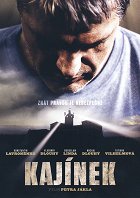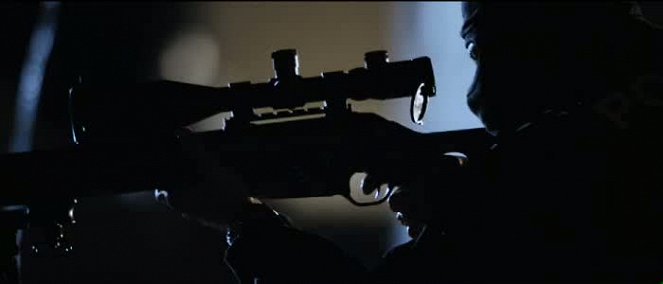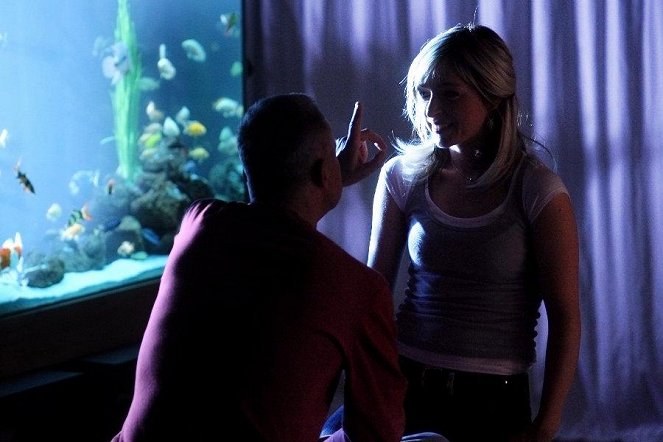Directed by:
Petr JáklCinematography:
F. A. BrabecComposer:
Václav Noid BártaCast:
Tatiana Dyková, Konstantin Lavronenko, Vladimír Dlouhý, Boguslaw Linda, Michal Dlouhý, Deana Horváthová-Jakubisková, Václav Noid Bárta, Werner Daehn (more)Plots(1)
A crime thriller inspired by the story of Jiří Kajínek, who is considered to be the first hitman in post-communist Czech Republic. He was sentenced to life and is currently serving his term in a high-security Czech jail. Following his escape from Mírov prison in 2000, Jiří Kajínek become an instant legend--as well as the most wanted criminal in Europe. The five weeks during which time he eluded the police are still shrouded in mystery.
The movie Kajínek is the powerful story of the most famous prisoner in the Czech Republic, the story of two murders, the story of a lawyer constantly looking for new evidence, the story of the underworld and of its infiltration into the state administration, and the story of political manipulation. Is Jiří Kajínek the victim of a conspiracy or a cold-blooded assassin? Is he trying to prove his innocence...or deceive the justice system? (official distributor synopsis)
(more)Videos (1)
Reviews (8)
Petr Jákl made a decent follow-up to the minority series of Czech action films, which after all have come a long way. However, I wouldn't go overboard with any ode to joy regarding this. As a film, Kajínek looks good, works well, and makes sense. Vilhelmová handles the lead role well and it is acceptable that most of the shots are carried by her acting. However, the supposed super look of the whole film also begins and ends with her trendy hairstyle and clothes. A significant step backward is the roles played by Alice Bendová and Michal Dlouhý, who only copy their performances from The Velvet Murderers. Horváthová - Jakubisková was also not cast ideally and I would blame the casting, not the actors themselves. One positive surprise was of course Vladimír Dlouhý and Václav Noid Bárta. The performances of Lavronenko and Linda were greatly influenced by the choice of their dubbers, and their characters blended adequately with the foreign voices, as was the case of their colleagues in the Czech film The Bitch's Diary. They were reproached for it back then, yet now it seems that audiences have gotten used to it or they don’t worry about what they need to find as an excuse to give it a lower rating. Which is positive. I'll see how Kajínek changes with the passage of time, i.e., if it fits in like the overly harsh Bolero, also visually worked on by F. A. Brabec, or if it will continue to stand out.
()
A film that is controversial in the most banal and brutal way I can imagine. A film with a solid momentum, but at the same time with a dizzyingly romanticizing image of Kajínek as a Czech James Bond. It is almost impossible to believe that this person is a member of the Czech underworld, as rather he looks like the post-revolutionary Mirek Dušín. I find that unequivocally questionable. The affected attempt at lyricism also got on my nerves, whether in the overstretched music of Václav Bárta or in the traditionally opulently empty camera of F. A. Brabec. The pinnacle of the movie? A famous and without question riveting performance by Lavroněnko, who made Kajínek into a character with whom the viewer will very easily identify and will feel sorry for/admire... Well? I doubt it.
()
A decently made, but incredibly boring fairy tale, which lacked only a kiss through the bars, which would have made him swoon before the truly hideous song sounding into the closing credits. The direction was helped a lot by Brabec's camera and Vladimír Dlouhý and Michal Dlouhý, but otherwise it was just boring and empty. Even Lavronenko and Vilhelm were not miraculous.__P.S. I don't want to see Václav Bárta and Alice Bendová in any more Czech films, please. One and a half.
()
Another Czech crime film, this time focusing on the story revolving around the most famous Czech prisoner, Kajínek. Petr Jákl wasn’t afraid to tackle such a well-known topic, which took courage, but he jumped at it like a chicken on feed. The opening massacre scene at Plzeň’s Bory prison was reminiscent of Western competition in many ways, and overall, the camera work was one of the key elements the film could boast about (F. A. Brabec knows his stuff). I liked the storytelling style, even though it deviated quite a bit from the real script in many places, but I guess it wasn’t possible to transfer everything to the screen. Lavronenko was the biggest surprise for me—it must have been unusual for the Czech audience to see a foreigner in the role of Kajínek, but he blew everyone away. You could see how well he had prepared for the film both physically and in terms of character, as I totally bought into his role. I’d also praise both of the Dlouhý brothers, as they are a clear guarantee of quality. Vilhelmová didn’t fit into the role of the lawyer for me, and I would describe her performance as dull. Where I would criticize the film is in the sometimes chaotic jumping around, Václav Noid Bárta's music that pushed a bit too hard, and also some of the acting performances. However, the escape from Mírov prison and the subsequent arrest of Kajínek in the apartment were handled perfectly. It has its flaws, but within the domestic scene, it still outshines most of the competition. I give it 77%.
()
As far as Czech thrillers go, it's quite good, but The Story of a God-Father was still considerably better and grittier in this regard. Jákl drew heavily from American productions and approached some action scenes in a similar style. It's not bad, but compared to what's out there, it just fades into the background. On the other hand, it's an example that a Czech action thriller can work.
()



Ads